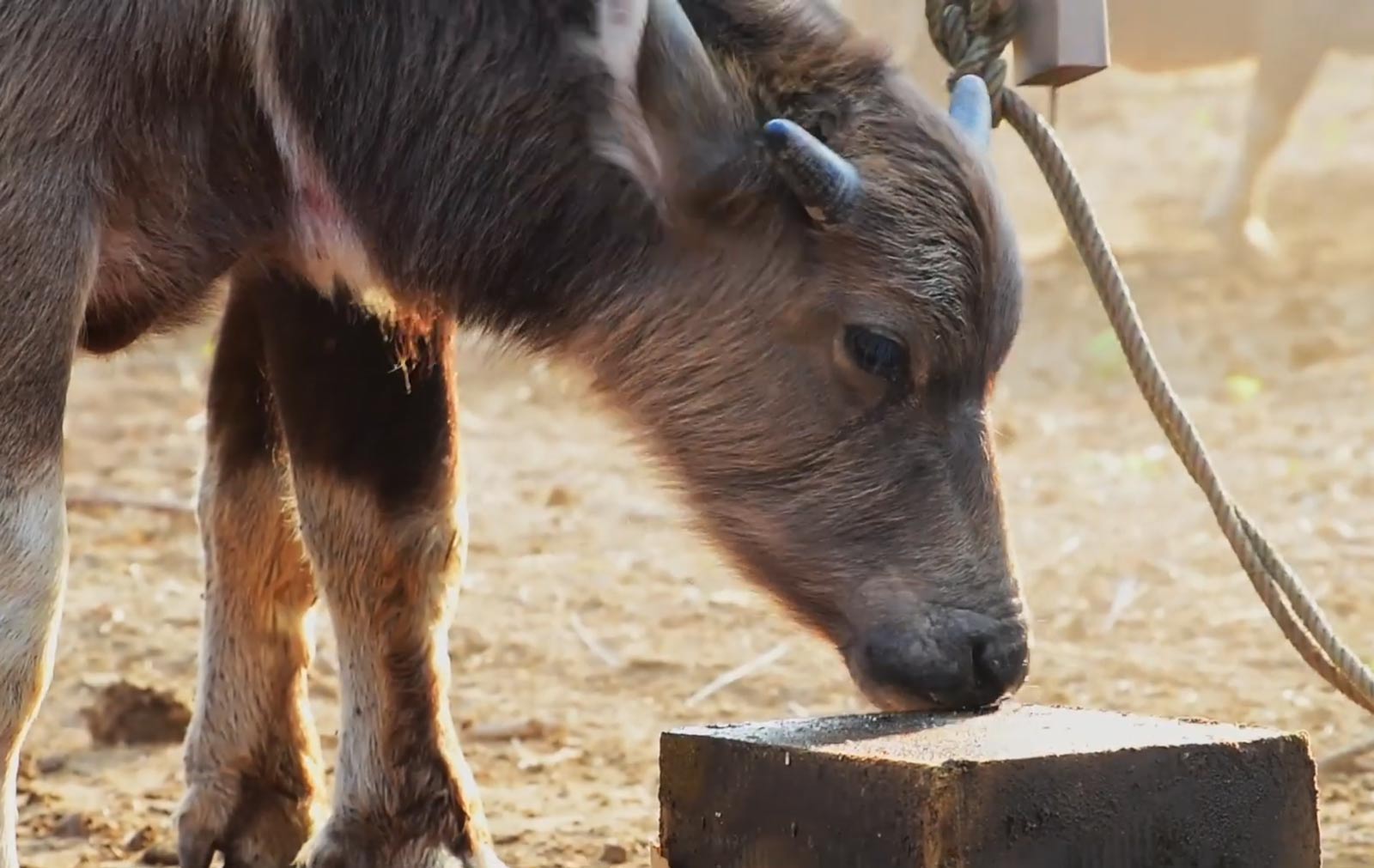
Australian startup AgCoTech has developed salt blocks that help dairy cows reduce greenhouse gas emissions.(Photo: AgCoTech)
Australian startup AgCoTech has developed a methane-reducing salt block for cattle, helping livestock farmers in Laos cut their greenhouse gas emissions by up to 40%.
The company has also successfully converted these environmental benefits into tradable carbon credits. Looking ahead, AgCoTech plans to scale up production and expand its footprint into Cambodia and Kenya.
Salt blocks slash methane emissions by 40%
Livestock farming accounts for roughly 10% of global greenhouse gas emissions, with methane from cattle digestion being a major contributor to global warming. Though methane remains in the atmosphere for a shorter time than CO₂, its heat-trapping potential can be over 80 times stronger.
The block contains locally sourced rock salt, lemongrass, molasses, and added minerals like magnesium and phosphates. These ingredients alter the microbial composition in the cow's stomach, reducing belching that contributes to methane emissions. Traditionally, salt blocks provide cows with essential nutrients like calcium, phosphorus, and sodium to boost milk production.
According to AgCoTech’s website, one 20kg block lasts up to 120 days and reduces methane emissions by 40%. Each mature cow using the block can cut emissions by as much as 880 kilograms of CO₂ equivalent annually.
From climate impact to carbon credit revenue
With support from the Australian government, AgCoTech launched its methane-reduction program in Laos in September 2023. Over the past two years, the company has distributed 50,000 salt blocks to 4,000 local livestock farmers. The resulting emissions reductions have been converted into carbon credits and sold to a UK-based pharmaceutical company at prices ranging from $30 to $50 per ton.
As one of Southeast Asia’s poorest nations, Laos presents both a challenge and an opportunity—many farmers struggle to provide adequate nutrition for their cattle, and methane emissions from Laotian dairy cows are higher than in Australia. This gap highlighted a market opportunity for AgCoTech.
Alexander Cameron, who oversees AgCoTech’s global operations and manufacturing, noted that although the salt blocks are distributed free of charge, AgCoTech still earns profits by selling the resulting carbon credits on international markets.
AgCoTech has already proven its model in both Australia and Laos. Its factory in Luang Prabang produces 35,000 salt blocks annually, with plans to open another facility in the capital, Vientiane, next year. The company also aims to expand operations to Cambodia and Kenya and increase annual production to 50,000 blocks. It is targeting carbon credit markets in Japan, Singapore, and beyond.
Source: AgCoTech, Nikkei Asia
.jpg)


